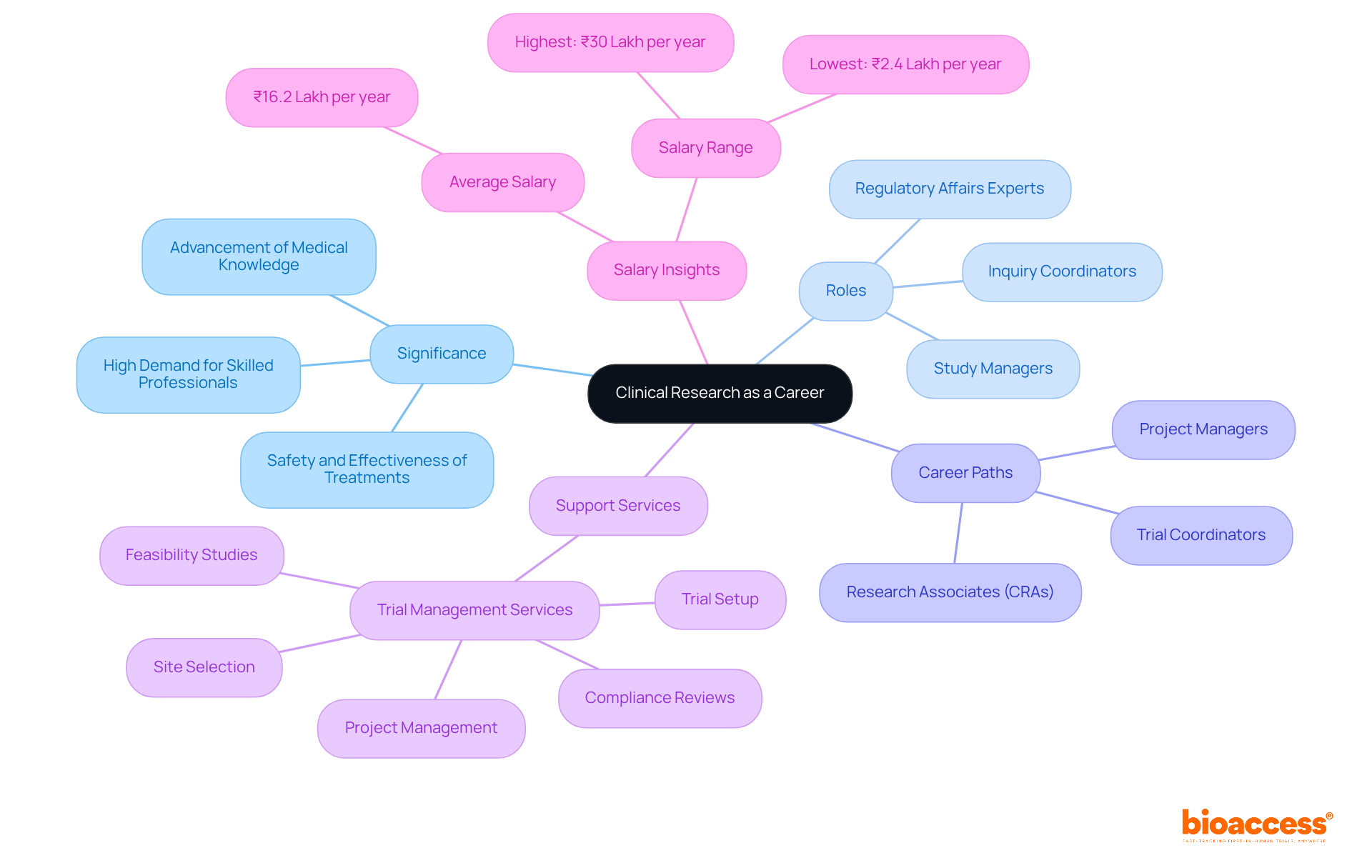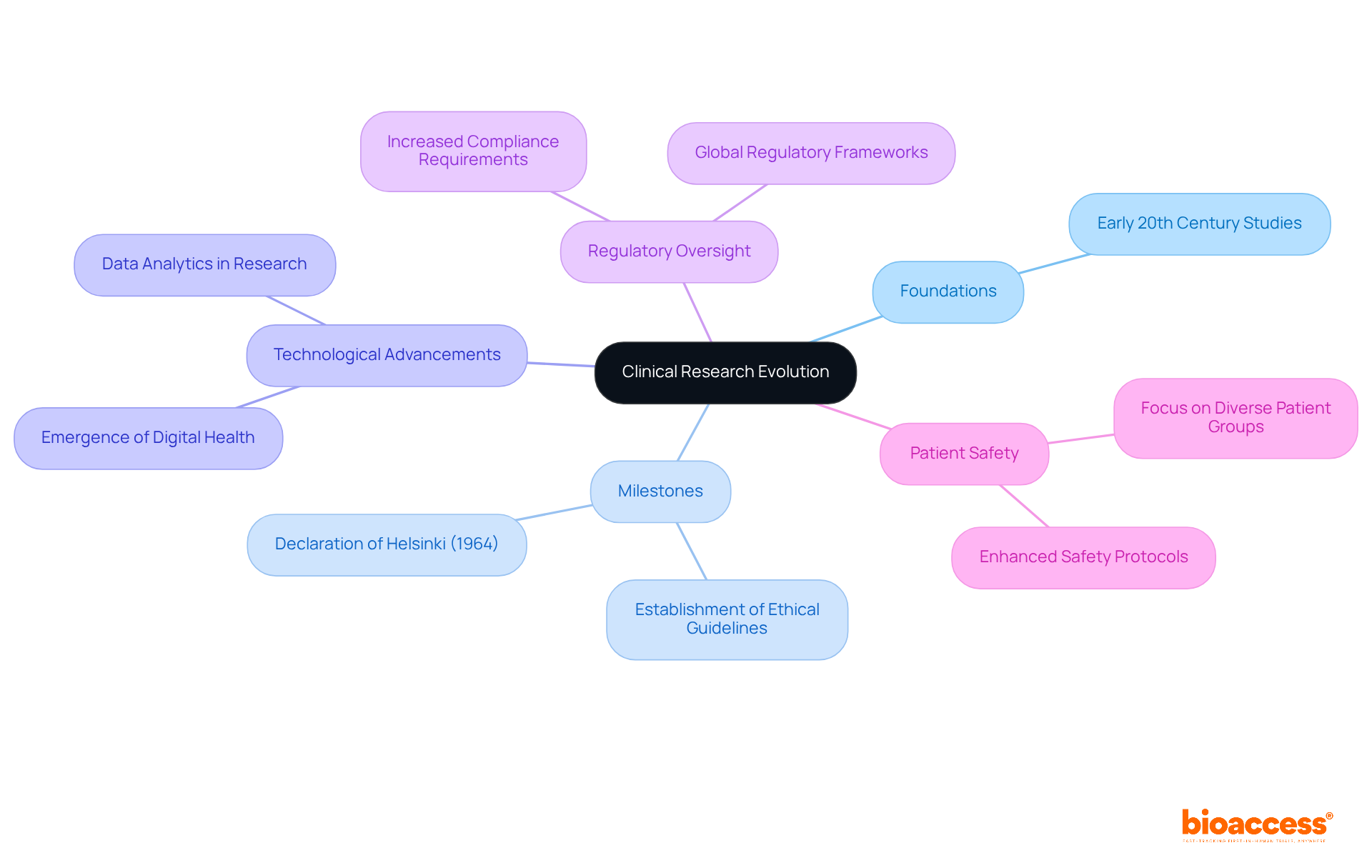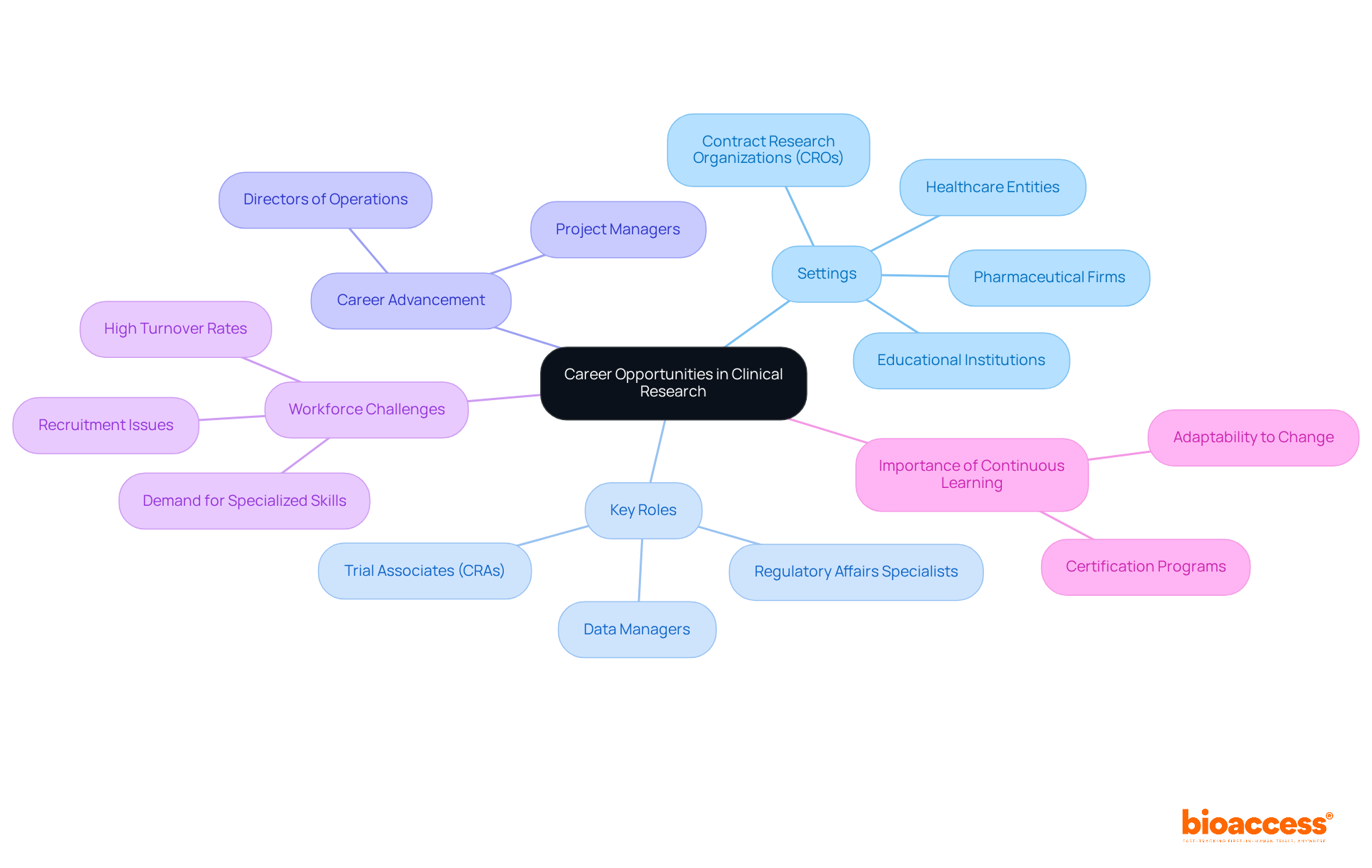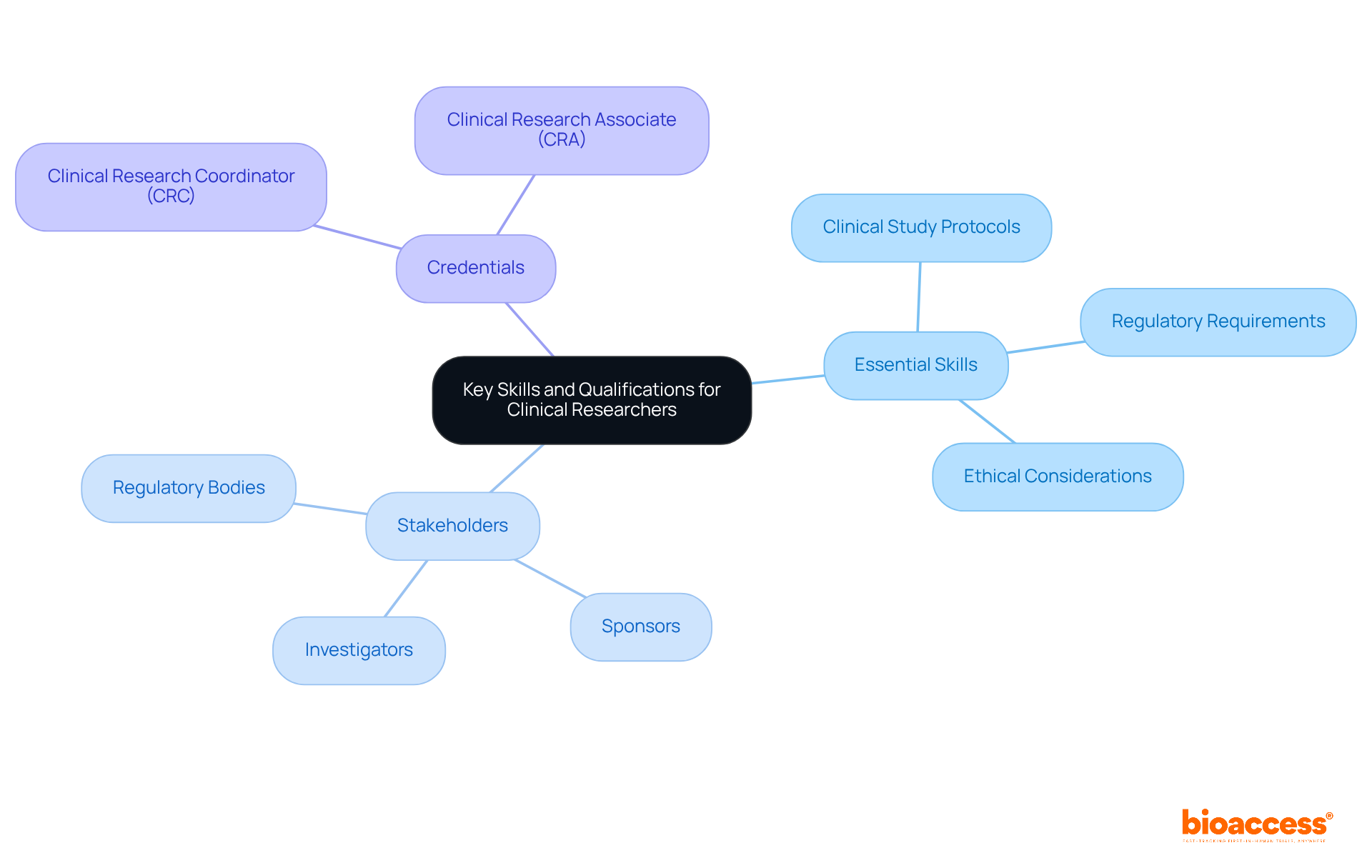


Pursuing a career in clinical research entails the systematic investigation of healthcare interventions to assess their safety and efficacy. Various roles, including trial coordinators and regulatory affairs specialists, play a crucial part in driving medical advancements. The increasing demand for skilled professionals in this field underscores the necessity of continuous education and adaptability. Navigating the complexities of clinical trials is essential for achieving career progression and responding effectively to the evolving landscape of healthcare research.
The healthcare landscape is undergoing rapid evolution, propelled by an unyielding quest for innovation and the necessity for effective treatments. At the forefront of this transformation is clinical research, which not only facilitates medical advancements but also offers a promising career path characterized by personal and professional growth.
With the increasing demand for skilled professionals in this sector, it is imperative to consider the challenges and opportunities that await those contemplating a future in clinical research. A thorough exploration of this dynamic field unveils the critical roles, essential skills, and emerging trends that define a career dedicated to improving patient outcomes and advancing health knowledge.
Pursuing clinical research as a career represents a vital pathway, encompassing the systematic examination of healthcare interventions, treatments, and devices to evaluate their safety and effectiveness. Professionals in this field play a crucial role in conducting research studies, which are essential for the development and authorization of new medications and healthcare technologies. This profession includes various positions, such as inquiry coordinators, study managers, and regulatory affairs experts, each contributing to the overarching goal of advancing health knowledge and improving patient outcomes through rigorous scientific investigation.
The significance of research trials cannot be overstated; they serve as the backbone of medical advancements, ensuring that new therapies are both safe and effective before reaching the market. As the demand for innovative therapies rises, so does the need for skilled experts in medical studies. In 2025, the average income for medical study professionals in India is projected to be approximately ₹16.2 lakh per year, with top earners reaching up to ₹30 lakh annually, underscoring the competitive nature of the sector.
Career paths in medical studies can be diverse. Many professionals begin their journey as trial coordinators or trial assistants, gaining valuable experience that prepares them for advancement to roles such as research associates (CRAs) or project managers. This progression not only enhances their expertise but also opens doors to higher salary brackets and leadership opportunities.
Experts emphasize that clinical research as a career is rewarding, merging intellectual challenge with the satisfaction of contributing to advancements in medical care. As the field evolves, embracing new technologies and methodologies, professionals are encouraged to remain curious and adaptable, ensuring they stay at the forefront of this dynamic industry. Moreover, undertaking relevant coursework under Good Clinical Practice (GCP) guidelines is essential for aspiring CRAs, especially for those who view clinical research as a career, particularly if they have limited experience. As one expert aptly noted, "Clinical research is 80% planning and 20% controlled chaos," highlighting the necessity for thorough preparation and adaptability in this field.
At bioaccess®, we facilitate this journey by offering comprehensive trial management services, including:
Our expertise in accelerating patient recruitment and site activation ensures that device startups can navigate regulatory challenges and competition effectively, ultimately enhancing global health through innovation and collaboration.

The foundations of healthcare studies can be traced back to the early 20th century, marked by significant milestones such as the establishment of the Declaration of Helsinki in 1964. This pivotal document underscored the ethical principles guiding health-related investigations. Over the years, medical studies have evolved remarkably, driven by technological advancements, increased regulatory oversight, and an intensified focus on patient safety. Today, these studies are more complex, often involving multi-site collaborations that reflect the global nature of healthcare exploration. This complexity underscores the necessity for diverse patient groups to ensure comprehensive and reliable outcomes.

The extensive career prospects in clinical research as a career encompass various settings such as pharmaceutical firms, contract study organizations (CROs), educational institutions, and healthcare entities. Key roles include:
Moreover, the landscape offers pathways for career advancement into leadership roles in clinical research as a career, including positions such as project managers and directors of operations, who supervise multiple studies and teams.
The demand for medical study specialists is on the rise, with the employment market for medical study coordinators projected to expand by 9.9% from 2016 to 2026. This growth is driven by the increasing complexity of medical trials and the necessity for skilled personnel to manage them effectively. Numerous success stories illustrate this potential, as many CRAs progress to senior roles within CROs, highlighting the opportunities for career advancement in clinical research as a career in this dynamic field.
Expert opinions emphasize the importance of ongoing education and adaptability, as the medical workforce faces challenges such as high turnover rates and a growing demand for specialized skills. As the field evolves, professionals who embrace continuous learning and certification will find themselves well-prepared to seize new opportunities in research.

Essential abilities and credentials for clinical researchers encompass:
Effective communication and interpersonal skills are crucial for collaborating with diverse stakeholders, including:
Additionally, proficiency in data management and analysis is essential, as researchers must ensure the integrity and accuracy of trial data. A background in life sciences, nursing, or a related field is often required for individuals interested in clinical research as a career, along with certifications such as:
These credentials enhance employability and demonstrate expertise in the field.

Pursuing a career in clinical research presents a remarkable opportunity to drive advancements in healthcare through rigorous scientific inquiry. This field is pivotal in ensuring the safety and efficacy of new treatments, offering a diverse array of career paths for aspiring professionals. With roles ranging from trial coordinators to regulatory affairs specialists, individuals can discover a niche that aligns with their skills and interests while making a substantial impact on patient care.
Key insights have emerged regarding the evolution and complexity of clinical research. The historical context reveals foundational ethical principles established by the Declaration of Helsinki, alongside how technological advancements have reshaped the landscape of medical studies. The demand for skilled professionals is clear, with career prospects expanding significantly, particularly in light of the projected 9.9% growth in the employment market for medical study coordinators. Continuous education, adaptability, and essential skills such as data management and effective communication are crucial for success in this dynamic field.
The importance of clinical research cannot be overstated. As the healthcare industry evolves, the need for dedicated professionals who can navigate the complexities of medical trials becomes increasingly critical. For those contemplating a career in clinical research, embracing ongoing learning and remaining adaptable will not only enhance personal career trajectories but also contribute to the broader mission of improving global health outcomes. Engaging in this vital work presents a unique blend of intellectual challenge and the rewarding experience of being at the forefront of medical innovation.
What is clinical research as a career?
Clinical research as a career involves the systematic examination of healthcare interventions, treatments, and devices to evaluate their safety and effectiveness. Professionals in this field conduct research studies that are essential for the development and authorization of new medications and healthcare technologies.
What roles are included in clinical research?
Roles in clinical research include inquiry coordinators, study managers, and regulatory affairs experts, all contributing to advancing health knowledge and improving patient outcomes through scientific investigation.
Why are research trials important?
Research trials are crucial as they serve as the backbone of medical advancements, ensuring that new therapies are safe and effective before they reach the market.
What is the projected income for medical study professionals in India by 2025?
The average income for medical study professionals in India is projected to be approximately ₹16.2 lakh per year, with top earners reaching up to ₹30 lakh annually.
What are common career paths in clinical research?
Common career paths include starting as trial coordinators or trial assistants, then advancing to roles such as research associates (CRAs) or project managers, which leads to higher salary brackets and leadership opportunities.
What makes a career in clinical research rewarding?
A career in clinical research is rewarding because it combines intellectual challenges with the satisfaction of contributing to advancements in medical care.
What skills are important for professionals in clinical research?
Professionals are encouraged to remain curious and adaptable, embracing new technologies and methodologies to stay at the forefront of the evolving industry.
What educational guidelines should aspiring CRAs follow?
Aspiring CRAs should undertake relevant coursework under Good Clinical Practice (GCP) guidelines, especially if they have limited experience.
What is the significance of planning in clinical research?
Planning is crucial in clinical research, as emphasized by an expert who noted that 'Clinical research is 80% planning and 20% controlled chaos,' highlighting the need for thorough preparation and adaptability.
What services does bioaccess® offer to support clinical research?
Bioaccess® offers comprehensive trial management services, including feasibility studies, site selection, compliance reviews, trial setup, import permits, project management, and reporting on study status and adverse events.